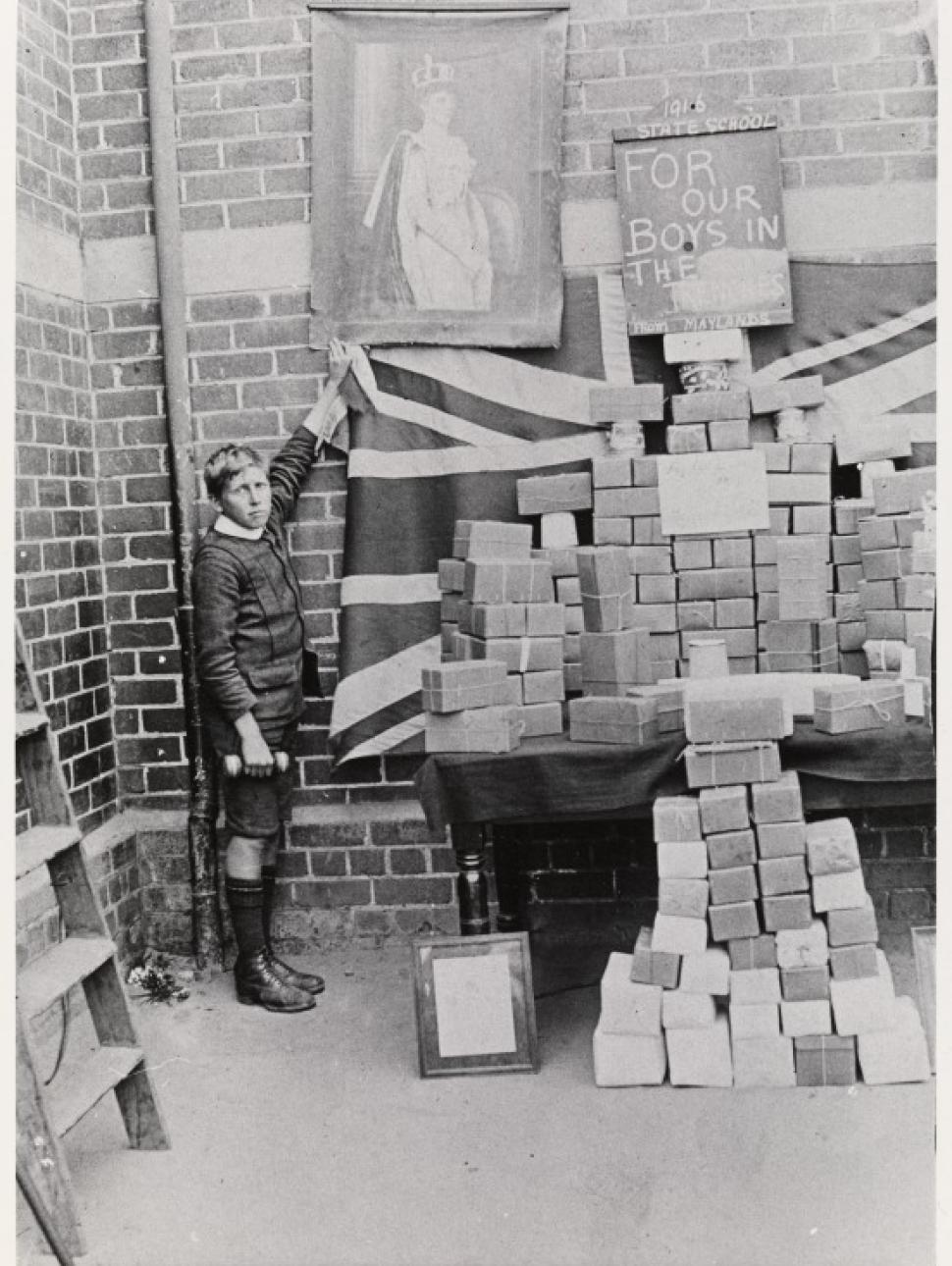
Webinar: On the Homefront
Dates
Friday 20 March 2026 | 1.30pm – 2.30pm | WW1
Friday 27 March 2026 | 1.30pm – 2.30pm | WW2
$80 per school
Join our Museum educator and fellow students from around the state for a webinar focusing on stories from Western Australia’s Homefront during the World Wars.
With soldiers at the front, Western Australians were confronted with sacrifice, societal pressure and change happening on the Homefront. In our webinars, our educators use objects from the Musuem's collection and in galleries, to tell stories about the experiences of those on the Homefront in WA during the World Wars.
Designed to enrich your in-class World War studies, the webinars enhance student learning through real life stories and objects they can relate to.
Webinars run for 45-60 minutes with cameras off to protect the privacy of those attending. However, we aim to make our webinars as interactive as possible. Students can engage via iPads or tablets capable of reading a QR code and are welcome to take notes.
Student experience
Students will:
- Hear stories of life on the Homefront in WA
- Recognise how objects can be used to tell powerful, personal stories
- Consolidate classroom in-depth learning about the World Wars
Curriculum Links
This program links to the following strands of the Western Australian Curriculum:
Year 9
Humanities and Social Sciences
Investigating World War I
-
The impacts of World War I on the Home Front, including at least two of the following: the use of propaganda, the role of women, political debates about conscription, relationships with the British Empire, the experiences of returned soldiers, including Aboriginal and Torres Strait Islander peoples.
Year 10
Humanities and Social Sciences
Investigating World War II
-
The impacts of World War II on the Home Front, including at least one of the following: the bombing of Darwin, the changing roles of women, the use of wartime government controls
Image: State Library of Western Australia